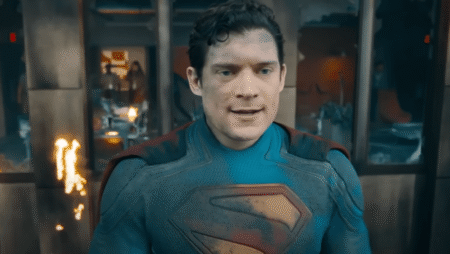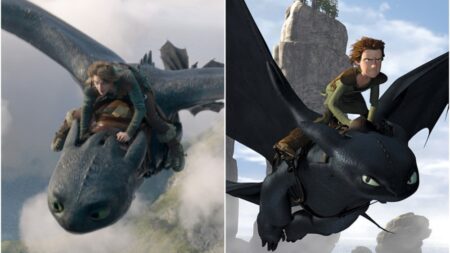“I’m sure you can throw curly ones,” Academy Award-winning actor Geoffrey Rush says as we sit down to talk at the Taormina Film Festival in Sicily. He’s wearing a Mambo Loud shirt of remarkable color and is here to receive a Taormina Excellence Award as well as present his new thriller “The Rule of Jenny Pen,” in which he stars as a judge recovering from a stroke in a care home and tormented by a malign, baby-doll-wielding John Lithgow.
Rush, who starred in Giuseppe Tornatore’s 2013 mystery “The Best Offer,” has a close affinity to Italy and tells me he’s ambitious to improve his Italian.
Why do you want to improve your Italian?
My goal is to be able to watch Totò and actually understand it, because my Neapolitan friend, Gianni, took me through some scenes and said he’s very funny. There’s a dryness to this persona. But he said Totò just leans on the language in very strange ways. Probably in the same way it would be hard to understand Groucho Marx, if you’re Italian. Even though everyone thinks Chico is Italian.
When you spoke with Variety a few years ago you were working on a Groucho Marx project, right?
We were developing it, but it’s on a back burner. I’m certainly hoping it will go ahead. I read that script five years ago. We have Oren Moverman, who’s a great director, and it’s been very collaborative. But there are too many people who say it’s a story from a bygone era, and you go: What so anything before 2025 is a bygone era? All those stories are part of an accumulation of human experience.
How do you feel things have changed?
Everything’s shifting. You can feel tectonic plates in the movie world grinding and changing. I just don’t know what the temperature at the moment is. We’re still in the aftermath of the COVID/streaming phenomenon taking over from people attending cinemas. But when you’re in a place like the Teatro at Taormina, there’s something so primal and fantastic about that number of people. It’s communality. It’s so hardwired into the species to get together, for rituals, for ceremonies. I have memories of being in the Leicester Square cinema when I first went to London in the 70s and seeing Martin Scorsese’s “New York, New York.” I’ve never heard laughter like it. When you watch that film on your own, you don’t realize it’s such a big comedy.
The technology of making films has also shifted.
I haven’t worked for a while, so I’m keen to see what a volume studio can do. With an LED panorama, you don’t have to go on location. I had that conversation with James Ashcroft, the director of “Jenny Pen.” He said you can go anywhere now but he feels actors are much more interesting if they know the space that they’re in, rather than pretending, just looking at a piece of pink tape on a wall being the antagonist. I did that in the overly maligned “Gods of Egypt,” which was a total green screen experience. But I thought this is like the theater where you pretend you’re Horatio and you’re on a battlement in Denmark, but you’re not, and you’re looking out above the audience’s head at Hamlet’s ghost father.
Technology can be a benefit or a hazard.
I took “Jenny Pen” to L.A. to do a premiere, and the driver we had one day told us there are so many non-driver cars in L.A. now. I’ve just been shooting a film in New York City. And driving home from the studios in New Jersey and traveling down Sixth Avenue at peak hour, no computer in the world is going to keep a number of driverless cars safe in that madness. I think the people who drive in New York have their own chip in their head.
What were you shooting in New York?
It’s a Shinya Tsukamoto film, who you may remember started out as a kind of punk manga hero, with “Tetsuo: Iron Man.” I was patron of the Melbourne Film Festival for a couple of decades, and some of his work played there. He’s in the middle of an anti-war trilogy in Japan, and this is his first English language film. So I went and shot it. I suppose you would call it an anti-war film, but it’s still not complete.
It’s not science fiction?
No, no, no. It’s a Vietnam War centered scenario. I don’t know how and why he happened to choose me to play a psychotherapist dealing with this post traumatic stress figure, but that’s kind of the basis of the film.
And after that?
The next one is sort of under wraps, really. I get to shoot another film in New Zealand. I don’t like to hex projects.
This interview has been edited and condensed for clarity.
Read the full article here








